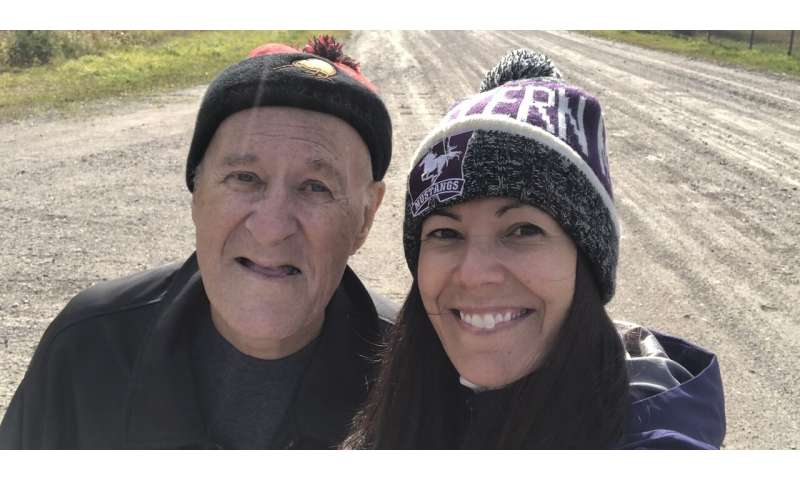
Strength, resiliency and hope might not be the first words you’d associate with COVID-19. But the authors of a new report on Indigenous health from the Royal Society of Canada wanted to challenge the narrative of negativity and focus instead on stories of community and connection.
COVID-19 and Indigenous Health and Wellness: Our Strength is in our Stories is a report packed with stories written by Indigenous scholars and community advocates from across Canada. It emphasizes the relational and holistic nature of Indigenous approaches to health.
Due to the enduring legacy of colonialism, the persistence of disparities and current inequities in housing, water, food and income security, First Nations, Métis and Inuit peoples are at high risk for contracting COVID-19.
“We know that people aren’t well, but there are many people working toward making our communities well, and we have to tell those stories too,” said Chantelle Richmond, a Western professor in the department of Geography & Environment who led the working group that created the report.
Richmond (Biigtigong Nishnaabeg) joined the RSC task force on COVID-19 in April. It was mandated to provide evidence-informed perspectives on major societal challenges resulting from COVID-19, and Richmond was asked to lead a working group focusing on the impact on Indigenous peoples.
A geography Ph.D. candidate, Vanessa Ambtman-Smith (Niizho Binesiik; Nêhiyaw-Métis; Thunderbird Clan; Treaty 6), also contributed to the report.
Both she and Richmond said the decision to convey information through personal stories was partly due to necessity: when Indigenous Services Canada reported COVID’s impacts on Indigenous peoples in May, its data was confined to those living on reserves or in Northern communities and left out those living in urban settings.
“It was missing about half of the population of Indigenous people,” said Richmond.
“We had to come up with an alternative methodology to talk about Indigenous experience during COVID because we don’t have that data,” said Ambtman-Smith. “Our public health system as a whole does not adequately collect information around Indigenous identities.”
The story-based approach aims to support Indigenous people as experts in their own ways of knowing, Richmond said.
The accounts in the report are deeply personal. Richmond wrote about losing her father—who passed away in December, 2019—and having to grieve without her family and community and being unable to perform the ceremony and obligations to honor him.
“For my family and so many other Indigenous peoples in Canada and beyond, COVID-19 has significantly disrupted cultural practices associated with death and grieving,” she wrote.
Ambtman-Smith recounted how she found safety for herself and her family through connections to the land and her own Indigenous identity. As someone adopted into a non-Indigenous family, she had been uncertain about these connections, but through the pandemic she had the opportunity “to access that Indigenous knowledge, the knowledge of our relationship with the land.”
She learned that she was not alone in feeling disconnected from her culture and knowledge of her ancestors, who have always protected Indigenous people. “As an Indigenous mother, I want to teach my kids how to respect land, how to belong, how to feel that sense of belonging and peace.”
Presenting their personal stories wasn’t easy for either author.
“It was a hard to do. I wasn’t able to access some of those feelings to be able to be able to write it. I had to record my voice,” said Ambtman-Smith.
Richmond said it was a challenge in comparison to writing an academic paper. “[The approach] was not one I was accustomed to, but it was really healing. There wasn’t a time I worked on the story that I didn’t cry.”
The format should not take away from the strength of the report as a scholarly work, said Ambtman-Smith, who pointed out that each portion was peer-reviewed.
Each individual story tells the collective story and contains bigger messages about why Indigenous people experience poorer social determinants of health and are more vulnerable to COVID-19 than other Canadians, she said.
Expressing hope that the report will be read and understood in its entirety, she added, “We are still not at a point in time where Canadians have a good understanding of our collective history. There is so much strength and resiliency in the world of Indigenous health. We have to be thoughtful of how we represent stories so that we don’t continue to fall into a narrative of helplessness, and hopelessness.”
Richmond pointed out that Indigenous peoples have lived through many pandemics and disruptions like climate change.
Source: Read Full Article
